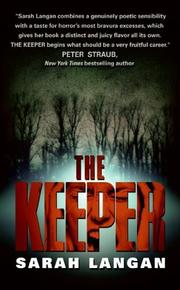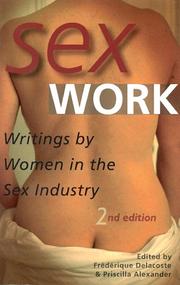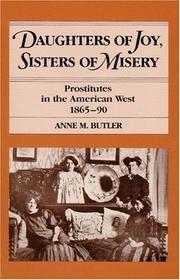| Listing 1 - 10 of 429 | << page >> |
Sort by
|
Book
Year: 1679 Publisher: London : Printed for L.C.,
Abstract | Keywords | Export | Availability | Bookmark
 Loading...
Loading...Choose an application
- Reference Manager
- EndNote
- RefWorks (Direct export to RefWorks)
eebo-0014
Book
Year: 1635 Publisher: Printed at London : [By Augustine Mathewes?] for Henry Gosson,
Abstract | Keywords | Export | Availability | Bookmark
 Loading...
Loading...Choose an application
- Reference Manager
- EndNote
- RefWorks (Direct export to RefWorks)
eebo-0014
Book
Abstract | Keywords | Export | Availability | Bookmark
 Loading...
Loading...Choose an application
- Reference Manager
- EndNote
- RefWorks (Direct export to RefWorks)
eebo-0018
Book
ISBN: 0774826142 1282741179 9786612741173 0774855215 Year: 2006 Publisher: Vancouver : UBC Press,
Abstract | Keywords | Export | Availability | Bookmark
 Loading...
Loading...Choose an application
- Reference Manager
- EndNote
- RefWorks (Direct export to RefWorks)
Sex workers are often the "objects" of study for academics and policy makers. Theories about their lives and the policies that affect their work are usually developed without input from the sex workers themselves, as they are rarely seen as capable of analyzing the social and political world in which they work. In this book, however, sex workers set the tone. Leslie Ann Jeffrey and Gayle MacDonald interview sex workers in three Maritime cities and those who work around them: police, health-care providers, community workers/advocates, members of neighbourhood associations, and politicians. The sex workers discuss such issues as violence and safety, health and risk, politics and policy, media influence, and public perception of the trade, portraying the best and the worst facets of their working lives and expressing sentiments refreshingly at odds with commonly held opinions. Given recent Parliamentary recommendations to decriminalize prostitution, Sex Workers in the Maritimes Talk Back represents a timely shift to public discussions about sex work. Engaging and accessible, this book will be of interest to public policy practitioners, students of social and political science, community advocates, police, and sex workers and their families.
Book
ISBN: 0415738482 9780415738484 Year: 2015 Publisher: London: Routledge,
Abstract | Keywords | Export | Availability | Bookmark
 Loading...
Loading...Choose an application
- Reference Manager
- EndNote
- RefWorks (Direct export to RefWorks)
Prostitutes customers. --- Prostitutes. --- Men
Book
ISBN: 9789573335740 9573335743 Year: 2020 Publisher: Taibei Shi : Huang guan wen hua chu ban you xian gong si,
Abstract | Keywords | Export | Availability | Bookmark
 Loading...
Loading...Choose an application
- Reference Manager
- EndNote
- RefWorks (Direct export to RefWorks)
Prostitutes --- Prostitutes. --- Prostituées --- China

ISBN: 0061244597 006087290X Year: 2006 Publisher: [Place of publication not identified] HarperTorch
Abstract | Keywords | Export | Availability | Bookmark
 Loading...
Loading...Choose an application
- Reference Manager
- EndNote
- RefWorks (Direct export to RefWorks)
Prostitutes --- Maine

ISBN: 1573440426 9781573440424 Year: 1998 Publisher: San Francisco: Cleis,
Abstract | Keywords | Export | Availability | Bookmark
 Loading...
Loading...Choose an application
- Reference Manager
- EndNote
- RefWorks (Direct export to RefWorks)

ISBN: 0252014669 9780252014666 Year: 1987 Publisher: Urbana: University of Illinois press,
Abstract | Keywords | Export | Availability | Bookmark
 Loading...
Loading...Choose an application
- Reference Manager
- EndNote
- RefWorks (Direct export to RefWorks)
They were called "frail sisters," "fallen angels," "soiled doves," and "whores." They worked the brothels, saloons, streets, and "hog ranches" of the American frontier. They were the prostitutes of the post-Civil War West. This book details the destitute lives of these nearly anonymous women. Anne Butler reveals who they were, how they lived and worked, and why they became an essential element in the development of the West's emerging institutions. Her story hears little resemblance to the popular depictions of prostitutes in film and fiction. Far removed from the glittering lives of dancehall girls, these women lived at the borders of society and the brink of despair. Poor and uneducated, they faced a world where scarce jobs, paltry wages, and inflated prices made prostitution a likely if bitter choice of employment. At best, their daily lives were characterized by fierce competition and at worst, by fatal violence at the hands of customers, coworkers, or themselves. They were scorned and attacked by the legal, military, church, and press establishments; nevertheless, as Butler shows, these same institutions also used prostitutes as a means for maintaining their authority and as a lure for economic development. Based on research in more than twenty repositories in Wyoming, Arizona. Texas, Colorado, New Mexico, and Kansas, using census lists, police dockets, jail registers, military correspondence, trial testimony, inquests, courts martial, newspapers, post returns, and cemetery records, this book illuminates the dark corners of a dark profession and adds much to our knowledge of both Western and women's history.
Book
ISBN: 2358720615 9782358720618 Year: 2014 Publisher: Paris: La fabrique,
Abstract | Keywords | Export | Availability | Bookmark
 Loading...
Loading...Choose an application
- Reference Manager
- EndNote
- RefWorks (Direct export to RefWorks)
| Listing 1 - 10 of 429 | << page >> |
Sort by
|

 Search
Search Feedback
Feedback About UniCat
About UniCat  Help
Help News
News